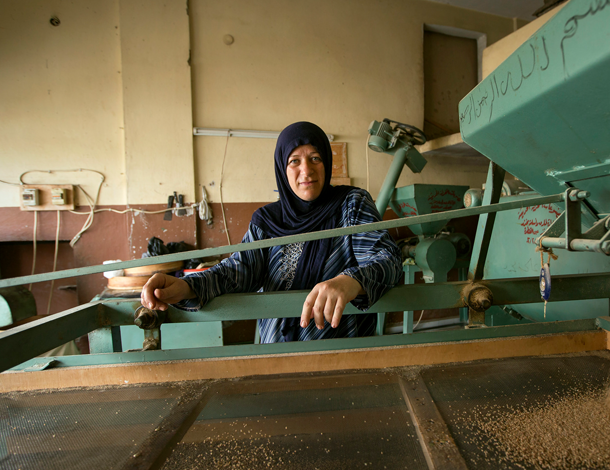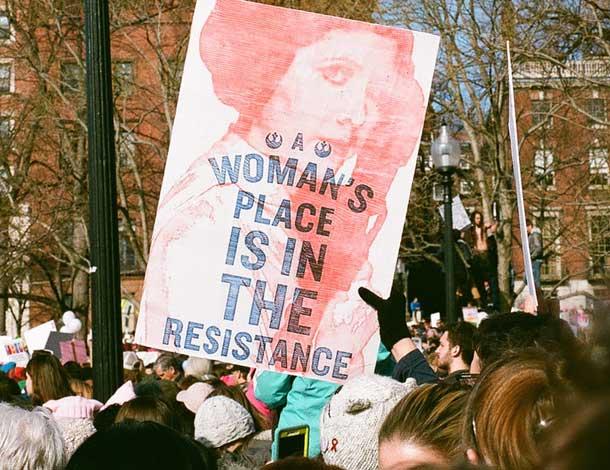The theme for this year’s sixty-first session of the Commission on the Status of Women (CSW61), taking place 13-24 March 2017, is ‘Women’s economic empowerment in the changing world of work’.
We have been led to believe that women’s economic empowerment is something that can be accomplished through the appropriate policies, and a few adjustments in the way women are integrated in the economy, both global and national. It is also argued that political will by member States, is key to “empower women” as defined more than 20 years ago in the historical Beijing conference.
Furthermore, academics have long insisted that there is undeniable proof that the greater the opportunities for women to participate in a given economy, the greater the boost to economic growth and national economies.
What prevents governments from putting the right policies in place?
The above-mentioned assumptions lack a fundamental analysis of the current context in which we live. Corporations and the power they hold have grown to unprecedented levels. At least 63% of the top 175 global economic entities are transnational corporations, not countries.
The revenues of the three largest corporations, Royal Dutch Shell, Exxon Mobil and Wal-Mart were higher than the gross domestic product of 110 countries (55 % of nation states). “If Wal-Mart were a country, its revenues would make it on par with the GDP of the 25th largest economy in the world, surpassing 157 smaller countries.” This has tremendous implications for who hold the power to decide what economic policies should be in place, and those who don’t.

What is corporate power
We define corporate power as “the excessive control and appropriation of natural resources, labour, information and finance by an alliance of powerful corporations, and global elites, in collusion with government”. And despite their massive economic power, corporations have little or no standing in or accountability under human rights law and practice.
There are many ways in which this power manifests. One of the ways is through the many Investor-state dispute settlement (ISDS) mechanisms flourishing around the world, which make it near impossible for governments to act in the interests of their people. In essence, they allow transnational corporations to sue national governments for protecting, labour rights, land rights or ecological diversity. For example, Veolia, a French transnational corporation, is suing the Egyptian government for raising the minimum wage; arguing that it increases the corporation’s production costs, and thus impacts their profit.
How women are most affected
Women’s labor is disproportionately exploited, informal, precarious and associated with the threat or reality of violence. While women’s participation in the world of work has continued to increase, they are still doing the most precarious work, earn less than men for the same work and shoulder the burden unpaid care and domestic work. According to ITUC, 40-50% of women globally experience unwanted sexual advances, physical contact or other forms of sexual harassment at work.
In order to advance women’s economic empowerment, policies must must address two key issues: wealth redistribution and meeting State obligations to funding for health care, education and care work. This is the area most affected by unregulated corporate power, particularly through pervasive corporate tax abuse, illicit financial flows, and a global web of secrecy jurisdictions, which are robbing countries of necessary public funds to fulfill their obligations to achieving women’s rights and justice.
Is women’s economic empowerment, in this system, even possible?
The social pact is broken. Increasingly relying on the corporate sector for development, and to fund multilateral institutions, will not lead us to greater gender equality. It also puts into question implementation of people’s human rights and government's accountability in fulfilling their obligations.
We must problematize the very idea of better integrating women into a system founded on domination and oppression. In essence, gender equality in an unjust system is merely a pragmatic survival tactic; the real struggle for women’s power in the economy the struggle for a just economy.
The struggle for a just economy will not only require structural changes in global trade, finance and macroeconomic policies, but it will also require our imagination to move away from talking about the economy in the singular and give space for multiple economies and self-determined visions of development.

Resistance amidst unprecedented backlash and violence
Women are organizing and agitating for change and building economies and systems outside of the dominant economy, which is based on the extraction and exploitation of labour and natural resources. They are being killed for it.
Violence is being used as a means to control workers or dissenters of the current economic or developmental models. Women human rights defenders confronting corporate abuse in their communities have repeatedly denounced how they are targeted, not only for the work they do, but also because of their gender identity. Violations include rape, sexual assault, and threats to themselves, and their families, that restrict their political participation in the public sphere.
Corporate power is often maintained by militarism and indeed the military industrial complex is an example of huge network of corporate and elite interests.According to the Business & Human Rights Resource Centres’ -a network conducting regional research to advance human rights in business and eradicate abuse- key database findings, over 400 cases of attack on defenders focussing on corporate accountability took place in 2015 & 2016. Companies they monitored were most commonly from China, USA and Canada.
March 3, 2017 marked one year since Honduran feminist and human rights defender Berta Cáceres was murdered. She was killed for organizing opposition to a hydroelectric dam on the Agua Zarca River in Lenca territory. Hers is not an isolated case fuelled by the specific context in Honduras, but one of the most extreme examples of deadly complicity between unrestrained corporate power, government impunity and elites across the world.
For women to enjoy their full human rights, the social, legal and political frameworks must be in place for women’s economic empowerment to make a significant difference in women’s lives.
2224x1253.jpg)